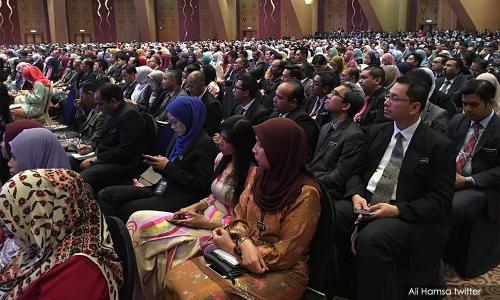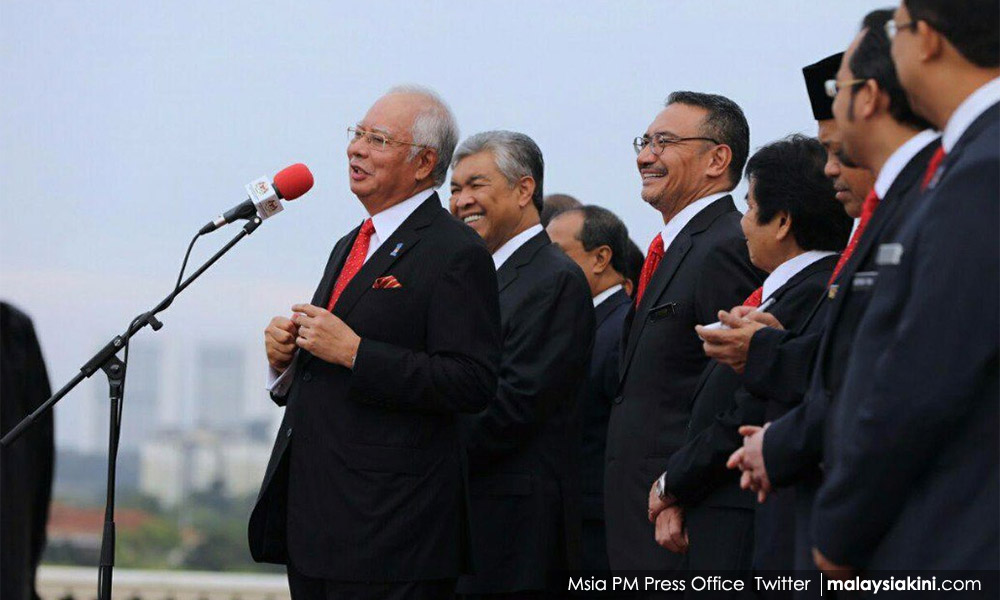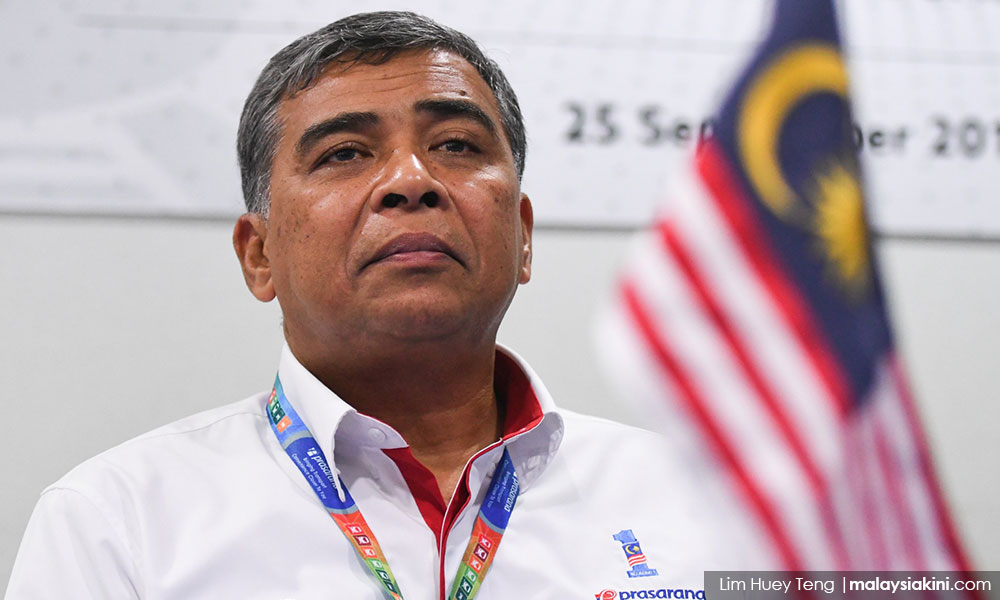No pensions for civil servants, but multiple pensions for politicians?
COMMENT | The government is contemplating a new scheme whereby appointments in the public service will no longer be made under the permanent and pension schemes, but will be replaced with a contractual scheme.
This was announced by Public Service Department director-general Borhan Dolah. He said this is aimed at reducing the burden of pensions, which are now reaching RM28 billion. Borhan added that existing civil servants might be given the option to switch to the new contractual scheme.
However, soon after that, the prime minister said no decision has been reached yet on the matter, and it has not been discussed by the cabinet. Will we be witnessing another of the new government’s familiar flip flops?
If the government is so keen to cut the burdensome pension bill, surely it should start by doing away with the multiple pensions that politicians get and restricting them to just one pension when they retire from politics?
As it is, our grabby politicians who monopolise federal and state parliaments, who double up as chief ministers at the state level and still want to be federal parliamentarians, who move from state to state to try their political fortunes, etc, can claim multiple pensions from these multiple posts.
Thus, if the government is keen to cut down on the national debt, shouldn’t they start by restricting the right of politicians to just one pension when they retire?
The price of populism
The prime minister has pointed out that the government’s pension bill has also been burdened by the previous administration's 25 percent salary increment for civil servants, which he said was done without considering the government’s financial strength.
The fact is, Malaysia’s bloated civil service is the price we are paying for just that sort of unbridled populism all these years since the New Economic Policy in 1971 and especially just before general elections.
Najib Abdul Razak wasn’t the only prime minister who indulged in this form of populism to fish for civil servants’ votes. It goes back all the way to 1971 when the civil service began to be expanded as a populist move to implement the 'Malay agenda'.
After the launch of the NEP, the expanding state sector has provided civil servants not only with opportunities for attractive salaries and 'perks', but also scope for private accumulation in the many business opportunities open to the bumiputra.
Thus, the proportion of Malays in the administrative and managerial occupations rose from 24 percent in 1970 to 32 percent in 1980. According to the 1980 census, more than 80 percent of all government executive officers were Malays while 96 percent of Felda settlers were Malay.
Malaysia’s bureaucracy is one of the biggest in the world, with 1.7 million civil servants to a population of 32 million, a ratio of 5.3 percent, compared with Singapore’s ratio of 1.5 percent, and Hong Kong's and Taiwan's 2.3 percent. We are spending more than RM41 billion a year to upkeep our civil servants.
While it is the growing trend of many countries to reduce their civil service, the Prime Minister’s Department, in particular, has done the opposite.
It has more than doubled its number of civil servants from 21,000 to 43,554. To date, there are 10 ministers in the Prime Minister’s Department alone, on top of other important agencies or governmental bodies that fall within the purview of the department.
The new Pakatan Harapan government has even invented new posts, special advisers to the ministers, for their unemployed politicians.
Naked civil servants
The original idea behind giving civil servants pensions was so that they give impartial service to the nation and that they maintain that integrity after they retire.
Now, we see the ‘revolving door’ syndrome only too often. The offer of Prasarana chairperson for the previous inspector-general of police so soon after he retired shows this revolving door between the civil service and the corporate world.
This practice is inimical to good governance and breeds corruption and non-accountability because of kickbacks and favours rendered by civil and armed service personnel in the award of contracts.
There are examples aplenty, especially in the energy and defence ministries, in my two books - Questioning Arms Spending in Malaysia and Damned Dams and Noxious Nukes.
And is more than 95 percent Malay dominance of the civil service not sufficient ‘affirmative action’?
The gross disparity in the ethnic make-up of the civil service up to March, 31, 2011, was revealed in a reply to a parliamentary question in August that year.
The second-largest ethnic group in the country, namely, the Chinese community made up less than two percent of the government service employees. There is a gross underrepresentation of the non-Malay communities and the East Malaysian indigenous communities in the civil service at all levels.
The large Malay representation of a bloated administration serves the populist objective of the Malay ruling class in charge of the state, since it creates race-based benefits to be given out to the Malays through the generous benefit and welfare and economic programmes of the government.
These include government medical and health facilities for government servants; favoured treatment including scholarships, admissions into higher education programmes; pension schemes, discounted travel fares for retired administration employees; discounted hotel charges in government-run hotels, and so on.
Recently, World Bank lead public sector specialist Rajni Bajpai noted in her report:
“There is a strong perception... that recruitment of the civil service is not fair and neutral (with) Malaysia scoring very poorly on the indicators for impartiality in the government.
"It’s the lowest-ranked, even below the region and way below the OECD,” she said, adding that the government in its election manifesto had suggested setting up an Equal Opportunities Commission to tackle discriminatory practices in both the public and private sector.
A striking case of racial discrimination is seen in the total absence of any non-bumiputra vice-chancellors in any of the public universities. This was not the case in the early years of Independence.
This surely has consequences not only for justice and civil rights of non-Malays, but also for the pursuit of meritocracy in the civil service.
The sharp decline in the ethnic composition of the non-Malays in the civil service perhaps reflects the conclusion in the World Bank report. This surely has consequences for “accountability, impartiality and the openness of its public sector”.
Thus, the reform agenda before the Harapan government is not just the question of “pensions or contracts” for the civil service, but a wider question of confronting and solving these issues, namely,
- The hugely oversized bureaucracy and a drain on taxpayers’ contributions;
- That the composition of and recruitment into the civil service is neither fair, neutral nor merit-based; and
- That our civil servants, including directors-general, are underperforming.
KUA KIA SOONG is the adviser of Suaram.
The views expressed here are those of the author/contributor and do not necessarily represent the views of Malaysiakini.
RM12.50 / month
- Unlimited access to award-winning journalism
- Comment and share your opinions on all our articles
- Gift interesting stories to your friends
- Tax deductable



